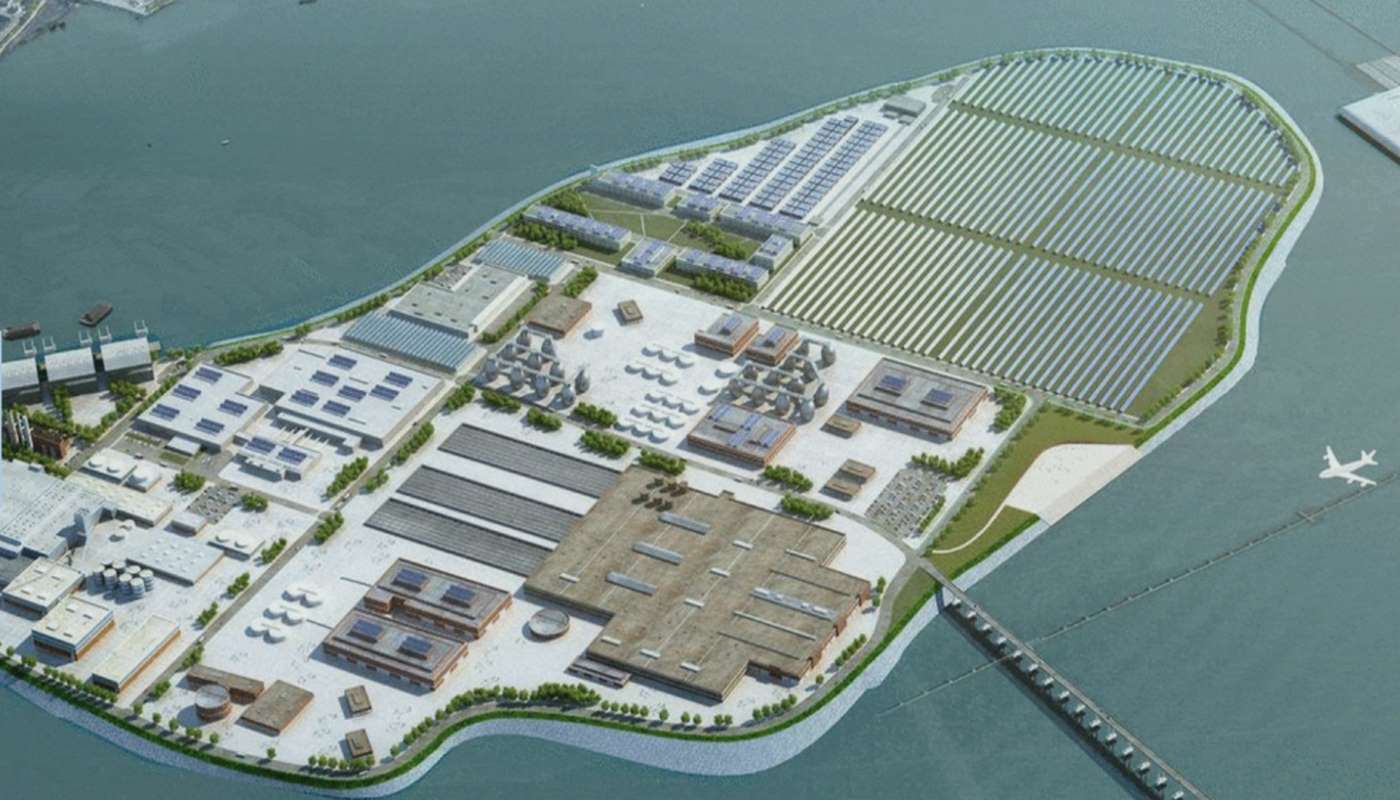California Tribe Reignites Age-Old Practice of Intermittent Burns to Prevent Wildfires
Karuk and Yurok tribal firefighters are using small traditionally-managed burning amid trees in the Klamath Mountains to prevent wildfires.

A coalition of groups are envisioning the former jails on Rikers Island as the hub for green energy generation, enough to power 45,000 homes.
They also see it as a potential hub of green energy job training, and as a replacement for at least several of New York City's gas-fired power plants.
Since New York City Council ordered in 2021 for the jailing on Rikers Island to be shut down in by 2027, ideas to use it as a hub to offset the huge emissions budget of the city came along straight away.
Rikers sits in an advantageous position within an infrastructural nexus near La Guardia Airport. Furthermore, large infrastructure could be more secure long term on Rikers, as it used to be the site of a landfill, making it about 100 feet higher than the surrounding land.
This allows for power generation of 275 megawatts, with an additional 1,500 megawatts of storage, allowing for the decommissioning of 5 gas-fired plants called "peakers" that operate a few times every year to handle peak demand.
But it's not everyday that so many acres become available just like that. It's so much that the Regional Planning Association, the group that commissioned the report on Rikers as a potential green energy hub, found that there would even be room for new wastewater plants.
Their report found that the aging wastewater treatment facilities on Randall Island, and in the Bronx and Queens, could all be replaced, clearing even more acreage for communities to add whatever infrastructure they have need of.
"It's got to be incredibly difficult to site a power plant in New York City," said Moses Gates, the RPA's vice president.
"Rikers would let you put all these things that are vital to the city and its future where there's the least effect on the surrounding neighborhood, while it lets you decommission a lot of the aging infrastructure."
Still further, they picture the installation of an anaerobic digester to create compost, and a recycling facility to process part of the city's waste. On opposite shores from Rikers sit Harlem River, 91st Street, and North Shore stations, which together process 30% of the Big Apple's waste.
A hub located at Rikers would allow huge amounts of waste to be diverted from being moved by garbage trucks. The huge proposed aerated composter and co-digester could produce fertilizer from much of the city's organic waste.
The idea of having a penal colony next to and on top of a landfill is a dreadful thought. This plan will hopefully begin a healing process for anyone who's spent time on the unhappy island, and turn at least a part of the Big Apple into a Big Green Apple.
SHARE This Green Transformation News With Your Friends On Social Media…
Be the first to comment